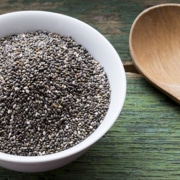How Folic Acid Can Improve Your Diabetes Diet | ADS
Everyone needs to eat right as a critical part of their overall health – but that’s especially true for people with diabetes. Building a diabetes diet can be a challenge however by understanding what makes foods healthy, taking time to learn about various nutrients and what they do can benefit you in so many ways.
One commonly overlooked but crucial nutrient is folic acid. The human body needs this vitamin and its counterpart folate to perform all kinds of different tasks. But while folic acid deficiencies can have serious health consequences, getting enough folic acid can help improve your health in several different ways. In this article, you’ll learn all about folic acid and how it can help you live with diabetes.
The Basics of Folic Acid
A type of B vitamin, folic acid is found in certain foods and supplements. Your body uses folic acid in various functions, such as:
- Cellular division
- Helping red blood cells mature
- Converting homocysteine to methionine
- Creating, fixing, and adding methyl groups to DNA
Despite the importance of these tasks, your body can’t supply folic acid on its own. That means this vitamin needs to come from your diet. Of course, not everyone gets enough folic acid, but a significant deficiency could have serious consequences. These can include congenital disabilities, increased risks of some diseases, and megaloblastic anemia.
Folic Acid vs. Folate: What’s The Difference?
Folic acid is actually an artificial, man-made product. This vitamin is a synthetic version of folate, a similar B vitamin that occurs naturally in many foods.
Many people assume folic acid and folate are the same thing. Still, folic acid and folate are different nutrients and have minor differences in their effects. That said, their differences are mostly negligible, so you can combine both folic acid and folate when determining your dietary intake of either vitamin.
Folic Acid Benefits For Everyday Health
Getting enough folic acid in your diet has some significant perks. Folic acid supplements and foods with folate are commonly used to prevent congenital disabilities. In fact, concerns about folate deficiency and congenital disabilities have led to policies focusing on folic acid supplementation for pregnant women.
That is just one way folic acid and folate can improve your health. These nutrients may also:
Increase the likelihood of live births in women using assisted reproductive technology
- Lower inflammatory markers
- Fight chronic kidney disease
- Reduce the side effects of some medications, including methotrexate
Foods With Folic Acid and Folate
As a vitamin found in nature, folate appears in many different plant and animal foods – including some that may already be part of your diabetes diet. Look for this vitamin in broccoli, avocado, some leafy greens (including kale and spinach), eggs, citrus fruits, and beef liver.
Meanwhile, folic acid often gets added to foods as part of the manufacturing process. They are prevalent in foods like cereal and bread since countries like the United States require their grain products to get fortified with folic acid to cut down on folate deficiency. You can also consume folic acid in the form of dietary supplements.
Folic Acid Intake Guidelines
Since the body absorbs folic acid and folate differently, any method of measuring these vitamins needs to be flexible enough that it can account for these differences. Enter Dietary Folate Equivalents, or DFEs – a unit of measure developed with this conundrum in mind. One mcg of DFEs equals either 1 mcg of folate, and equaling 0.5 mcg of folic acid supplements consumed on an empty stomach, or 0.6 mcg of folic acid consumed along with food.
Generally speaking, adults need to get roughly 400 mcg of DFEs every day. That amount rises significantly for women who are pregnant or breastfeeding, however. Pregnant women should get 600 mcg of DFEs daily while breastfeeding women should get 500 mcg of DFEs.
Cut Down On Diabetes Symptoms and Complications With Folic Acid
Along with the health benefits listed above, folic acid can help you manage and even avoid diabetes. Notably, research suggests that consuming a folic acid supplement every day may lower your likelihood of gestational diabetes. It can also help you with these diabetes symptoms and complications:
High Blood Sugar
One of the most significant steps you can take to manage diabetes is closely monitoring your blood sugar and taking action based on this information. Fortunately, folic acid supplements might enhance people’s ability to control their blood sugar.
Insulin Resistance
Another common concern among many people with diabetes is their bodily resistance to insulin. As it turns out, there’s also evidence that folic acid can possibly lower insulin resistance levels in people with diabetes.
Neuropathy
The term “diabetic neuropathy” refers to a type of nerve damage caused by elevated blood sugar levels. Since folic acid is linked to enhanced blood sugar control, it’s no surprise that it can also lower your neuropathy risk.
Alzheimer’s Disease
Several studies suggest that diabetes comes with a heightened risk of developing Alzheimer’s disease and dementia. Low folate levels – or even levels on the low end of “normal” – may further increase your risk. On the other hand, folic acid supplements may enhance brain function in people with Alzheimer’s disease.
Mental Health Problems
The stress associated with diabetes management can result in issues related to mental health. Though folic acid can’t eliminate this source of stress, it could make it easier for you to deal with it. People who have depression often have lower folate levels than people who don’t have this condition. Research indicates that folic acid supplements can help control depressive symptoms when taken alongside antidepressants.
Heart Disease
One of the most infamous diabetes complications is heart disease, so it’s essential to do everything you can to reduce your heart risk. A review of 30 studies and with over 80,000 people determined that folic acid supplements could reduce heart disease risk by 4 percent and stroke risk by 10 percent.
Manage Diabetes With Folic Acid
Since most adults in the United States already get enough folic acid, you may not need to make any dietary changes or start taking supplements. If you are concerned about your folic acid intake, talk to a Registered Dietitian and your healthcare team before changing your diabetes diet. And whenever you need glucose meters, testing supplies, and other products to manage diabetes, make this easy for yourself by shopping online at ADS!










